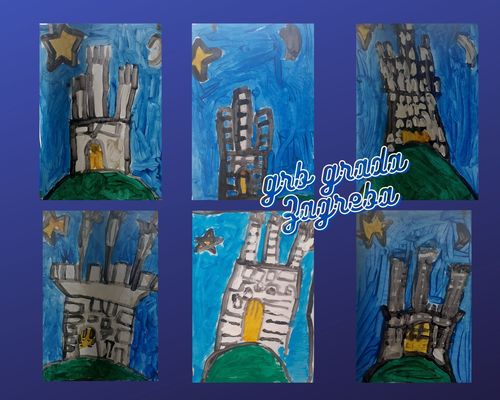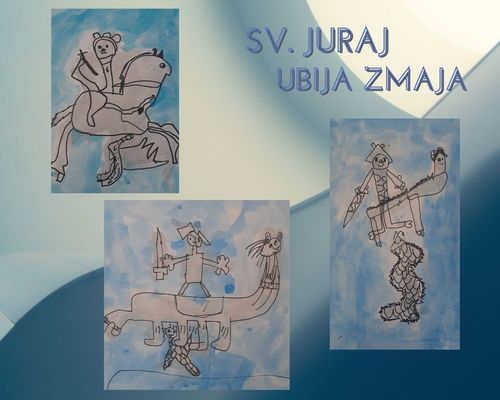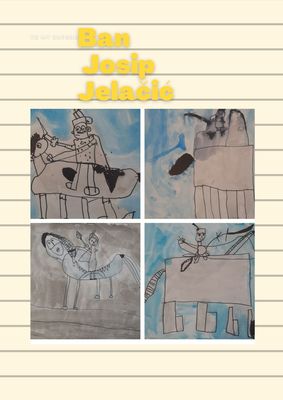Sanja Sajko and Suzana Tojčić, kindergarten Remetinec, Zagreb, Croatia
Centar of our activities
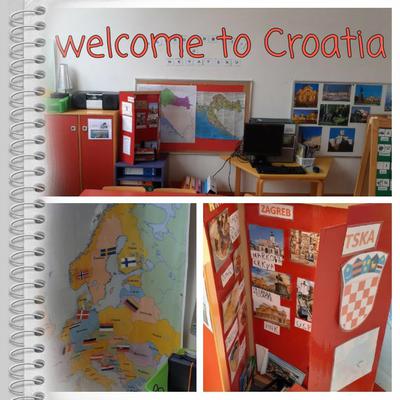
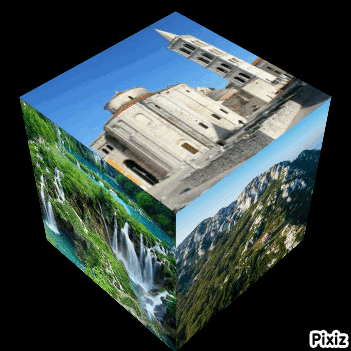
We learn something about our regions
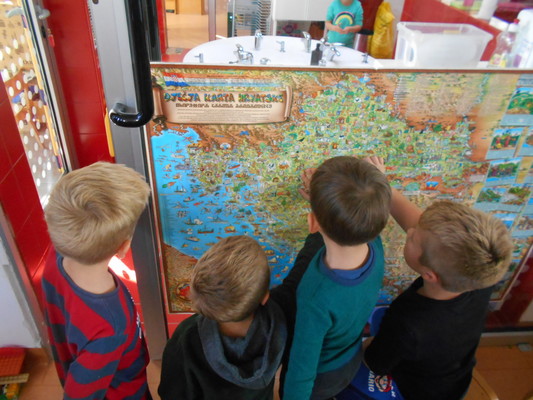
a girl from our group was in town Zadar (region Dalmatia) and she made with her parents a poster presentation.
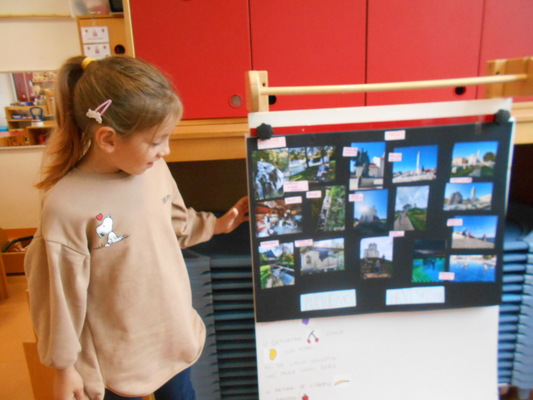
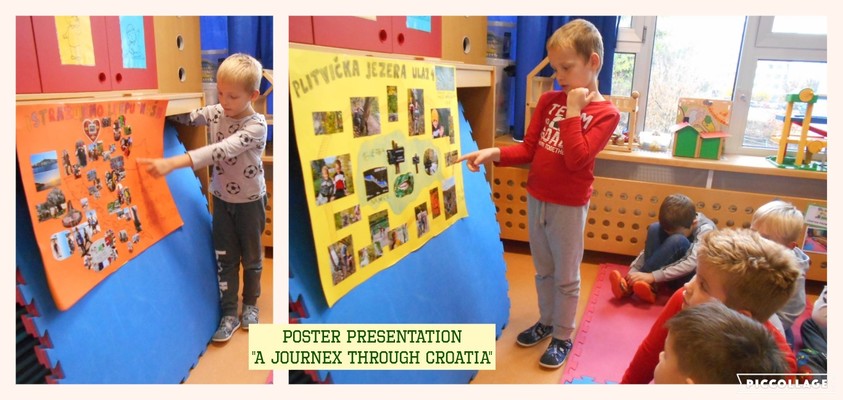
ISTRIA AND KVARNER - ADRIATIC REGION
PLAY AND LEARN WITH US
Istria is near Italy and Slovenia. Scan code and find interesting places
I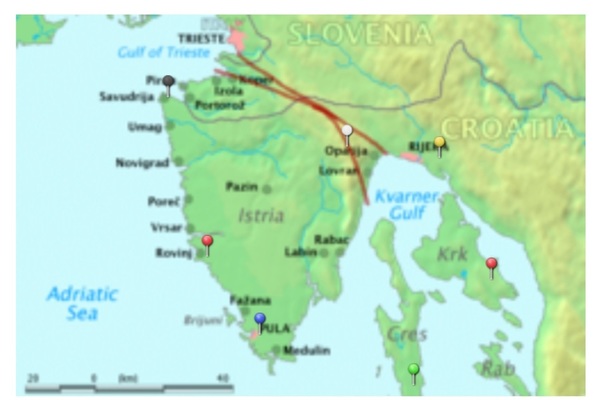

Suzana Tojčić
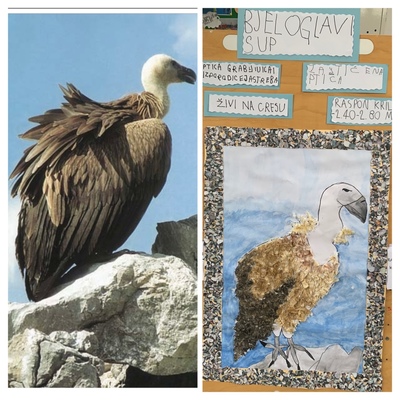
GRIFFON VULTURES is one of the largest bird spicies in the world and largest one in Croatia, with a wingspan of 240 to 280 cm. Griffon vultures in Croatia only nest on the islands of Cres, Krk, Prvić and Plavnik. They enjoy legal protection as an endangered spicies in Croatia.
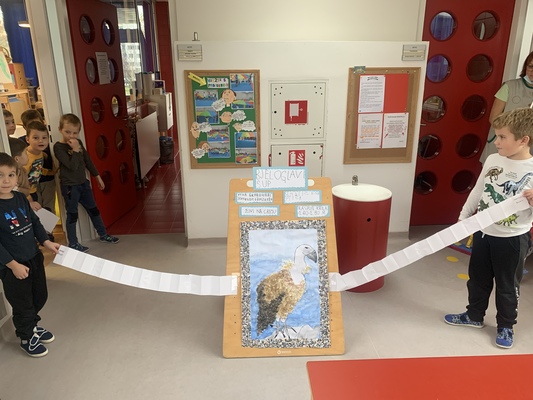 The wingspan of griffon vulture is up to 280cm.
The wingspan of griffon vulture is up to 280cm.
MOUNTAIN REGION OF CROATIA
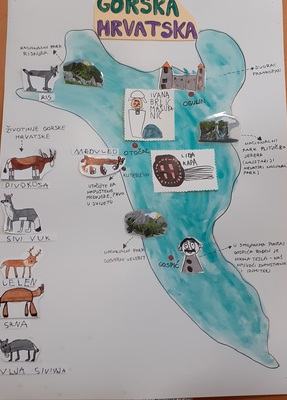
Beautifull nature
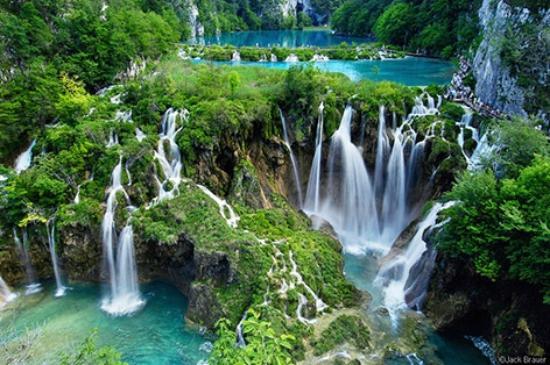
Risnjak national park
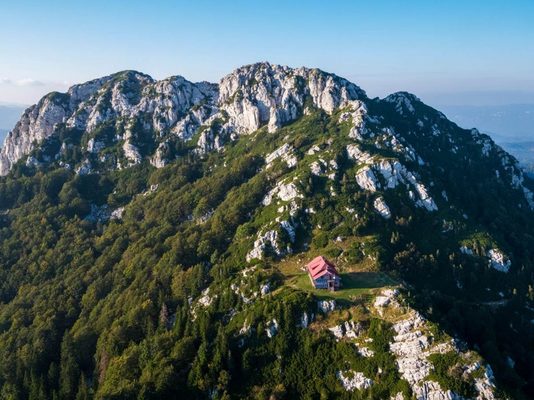
The "hat from Lika" is a part of the traditional folk costume, art activity.
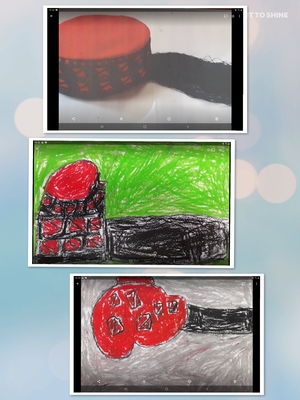
The Marvellous Adventures of Hlapić the Apprentice, is a 1913 novel by Croatian children's author Ivana Brlić Mažuranić. She was born in Ogulin in mountain region of Croatia. The novel was published in English in 1972. We read the book, and here are some art activity.
Portret of the author, and the illustration of the main characters of the novel.
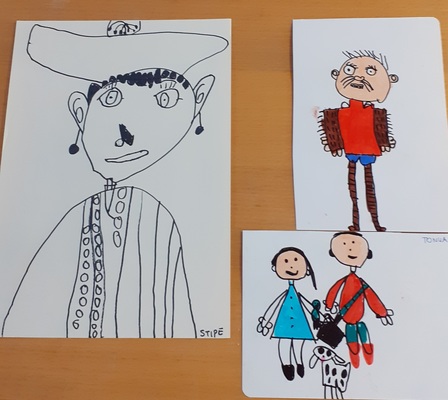
Old castle "Frankopan" in Ogulin art activity
Today ethnographic museum
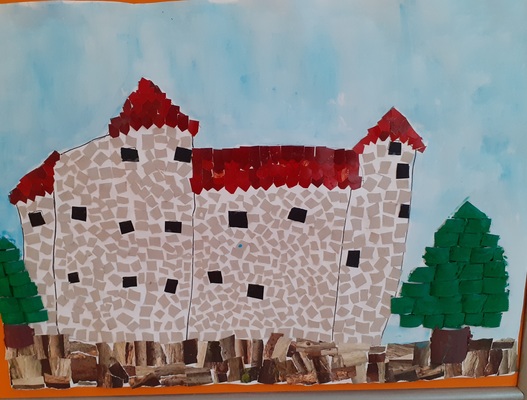
Poster presentation about town Ogulin - the town of fairy tales
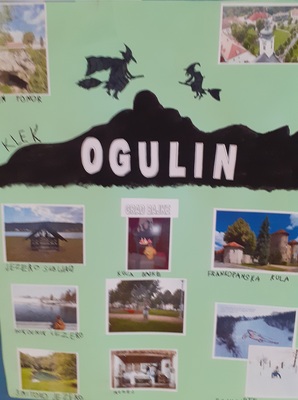
The portret of Ivana Brlić -Mažuranić:
IVANA BRLIĆ-MAŽURANIĆ was born2874. in Ogulin. Her books of novels and fairy tales for children have been translated into nearly all European languages. In her book "Croatian tales of long ago" she created a series of new fairy tales and she earned comparisons to H.C.Andersen. She was nominated for the Nobel prize in literature four times.
DALMATIA - ADRIATIC REGION
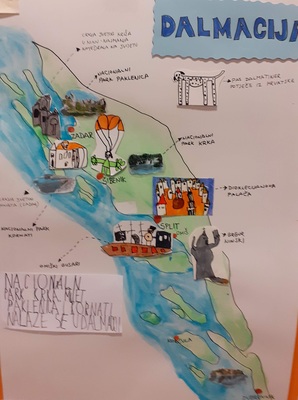
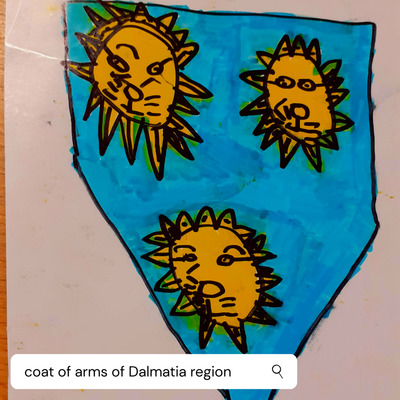
Saint Donat's church in Zadar art activity
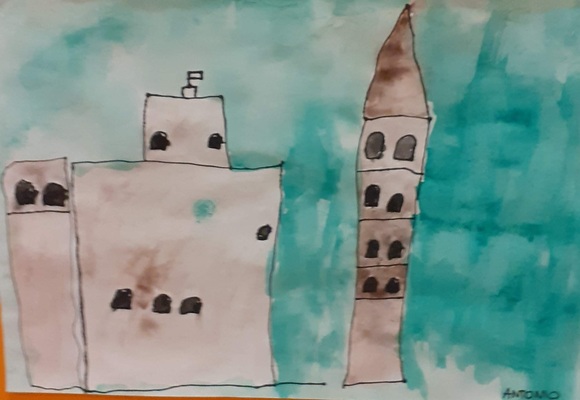
St. James carhedral in Sibenik art activity
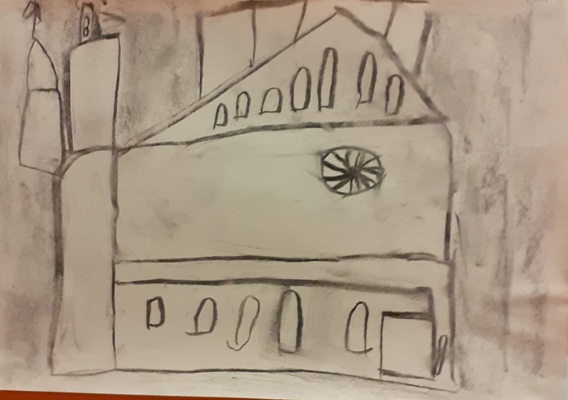
the Dalmatian dog originates from Dalmatia
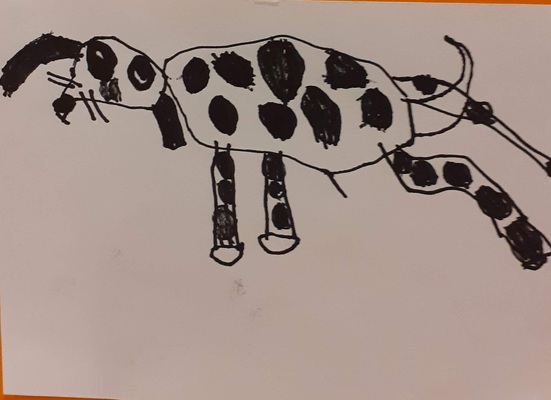
Dražen Petrović, Croatian world famous basketball player, died in car ctash
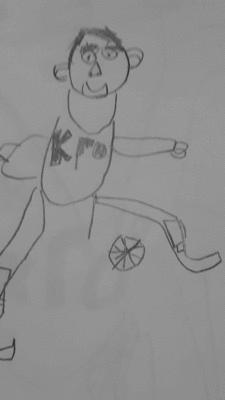
The 8.5-metre tall Split statue of Gregory of Nin created by Ivan Meštrović, Croatian sculptor and architect is a much visited sight in town. Rubbing the toe of the statue is said to bring good luck.
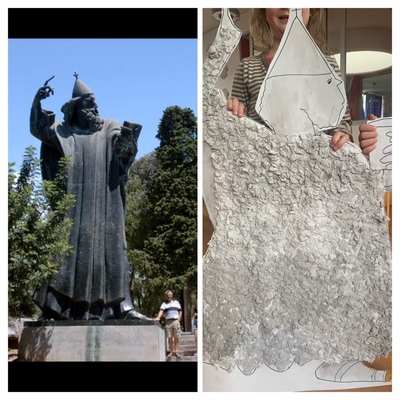
Portret of Ivan Mestrovic
Art competition
1st prize a little child from our group.
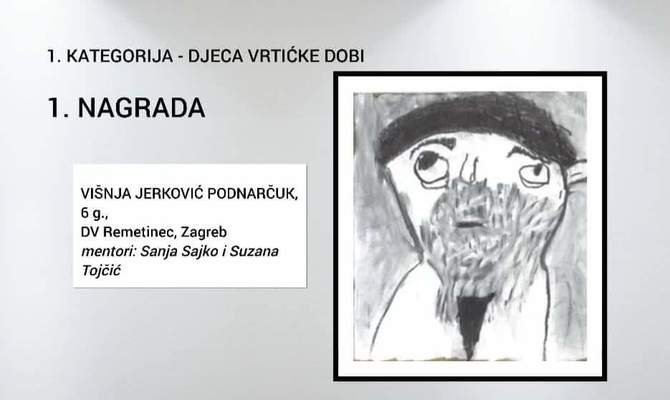
IVAN MEŠTROVIĆ (1883.-1962.) was a Croatian sculptor, architect and writer. He was the most prominent modern Croatian sculptor and a leading artistic personality in contemporary Zagreb. He spent his childhood in the small Dalmatian village of Otavice, the native place of his parents.
The portret of Ivan Meštrović:
SLAVONIA AND BARANJA REGION
Welcome to the region of eastern Slavonia and Baranja - the picturesque countryside located in the east of the Republic of Croatia, on the Danube River, in the very middle of its 2850 km long flow from the Black Forrest to the Black Sea.
The region is best known for the spacious and fertile fields, big rivers and marshlands, gentle green hills, colourful villages, old cities, joyful people with rich traditions (the “Tamburica” mandolin, folk music and costumes), gastronomical treats (Wild game roasts, “Čobanac” - chobanatz - variation of goulash; Fish-paprikash - spicy fish stew; Kulen - a traditional sausage; Cottage cheese or poppy seed strudel) and - wine.
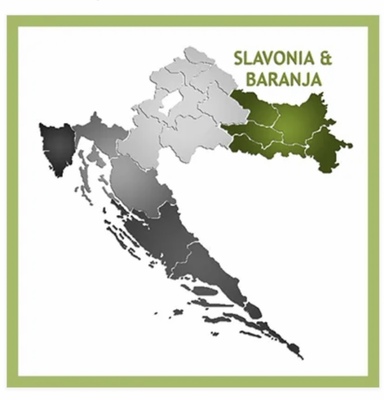
THE VUČEDOL CULTURE
The Vučedol archaeological site is one of the most significant archaeological sites in Europe. It is located on the right bank of the Danube River, four kilometers downriver from the city of Vukovar, at the spot where an intermittent watercourse in a loess plateau 25 meters high cut a narrow steep valley on the way towards the river.
The main metallurgical and cult center of this unique archaeological site is Gradac, the place where the famous Vučedol Dove, an emblem of the Vučedol culture, was discovered.
The Vučedol dove - art activitie
VUKOVAR WATER TOWER
Vukovar water tower is a water tower in the city of Vukovar. It is one of the most famous symbols of Vukovar and the suffering of the city and the country in the Battle of Vukovar and the Croatian War of Independence, when the water tower and the city itself were largely destroyed by the Yugoslav forces.
A water tower that became a symbol of Vukovar, is being reopened as a memorial after it was renovated.
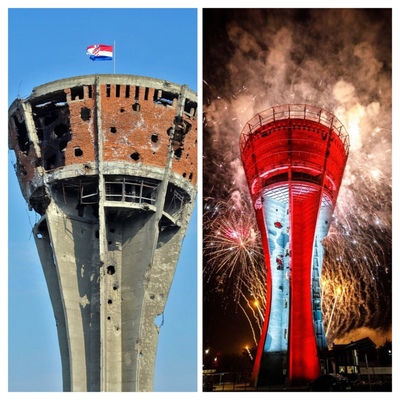
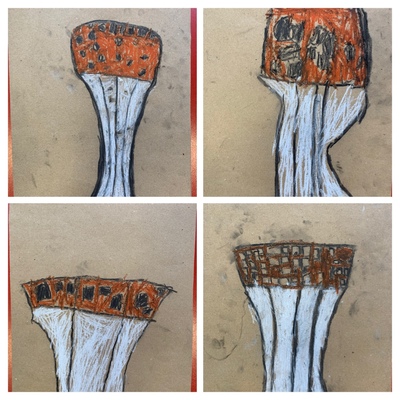
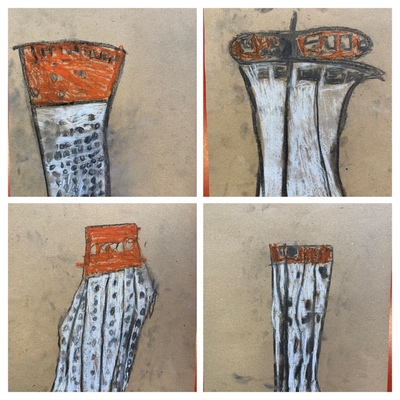
NATURE PARK "KOPAČKI RIT"
In 1920 it was declared a state hunting place, and in 1967 the area becomes Managed Nature Reserve. It becomes a nature park one decade afterwards. Due its exceptional natural value, Kopački rit was enlisted in 1993 on the List of Ramsar areas. In addition to Ramsar, Kopački rit is also on the list of program IBAs (Important Bird Areas).
THE BLACK STORK
Kopački rit is one of the largest natural wetlands in Europe and as such has been recommended for inclusion in the UNESCO List of Natural Heritage. Large herds of deer are practically a trade mark of Kopački rit, despite the fact that herds of wild boar are just as large. There are other mammals in the park but far more numerous are birds, a total of 300 different species. The most important among them are the very rare and protected species: white tailed eagle and black stork.
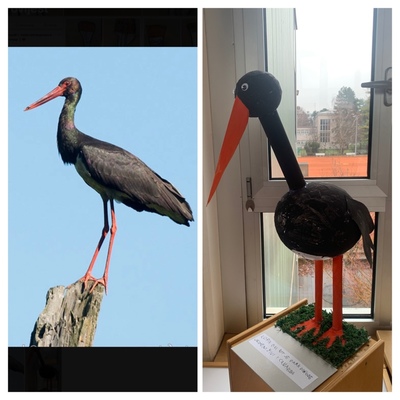
CENTRAL CROATIA REGION
Central part of Croatia is extraordinary rich in history and cultural heritage. Explore numerous medieval castles and fortifications, churches, abbeys, and archaeological sites.
In this region near town Krapina is hill Hušnjakovo the home of Stone man.
Art activity "Stone man"
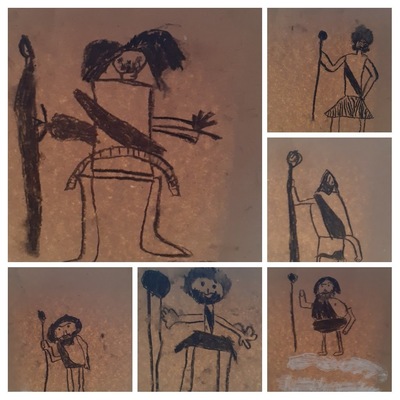
Scientifically known as Homo sapiens Neanderthalensis, the Krapina prehistoric man was discovered all the way back in 1899, when geological and paleontological research started on Hušnjakovo hill in Krapina. Excavations, supervised by professor Dragutin Gorjanović-Kramberger, a well-known Croatian geologist, palaeontologist and paleoanthropologist, lasted six years (1899 – 1905). His works significantly contributed to European and global science of the fossil man.
Due carnival days the famous carnival city in Central region is in town Samobor, near Zagreb
The special atmosphere that Carnival has in Samobor was added thanks to Josip Kompare who in 1860 started to introduce political and social criticism and sharp satire into local folk customs. Carnival processions, allegorical wagons, provocative signs and illustrations were aimed to “sting” those who deserved it. It is no wonder Mr Kompare was often in the spotlight of government and political opponents, but the conflict peaked to the point of no return, was taken over by the people and the town of Samobor started organizing Carnivals like no other town before.
With time, the Carnival events started being accompanied by appropriate newspapers which are still printed today; “Sraka” started publishing in 1904.
Art activity "Sraka"
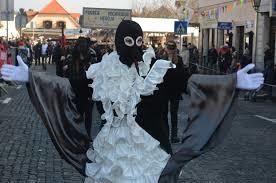
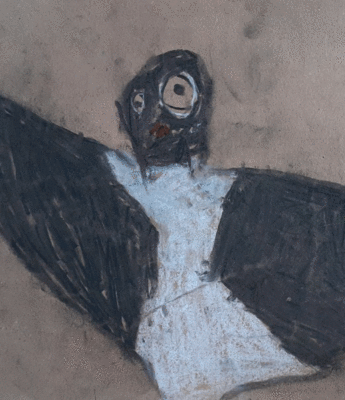
Zagreb - capital city of Croatia
Zagreb, capital and chief city of Croatia. It is situated on the slopes of Medvednica Hill (Zagrebačka Gora) to the north and the floodplain of the Sava River to the south.
Learn something about Zagreb
Zagreb capital city of Croatia
